The past eight months have been a roller coaster of a time, particularly in regards to travel. Western media largely fell silent about China (except to continue to blame the country for the outbreak) once the virus was controlled. So, what can one expect when traveling in China during “covid-19 times”?
Since May we’ve been able to travel quite freely even as COVID-19 numbers spike in other countries. Occasionally, if there is a contained outbreak in an area, they won’t allow unnecessary travel to and from that area.
Of course, there are reasons why the coronavirus has been largely controlled and procedures in place that everyone needs to follow when traveling. However, there is sometimes a difference in how foreigners are treated then Chinese nationals because of the virus situation. I try to address both of these topics here in order to be fully transparent about my experience. But first, let’s back up a little.
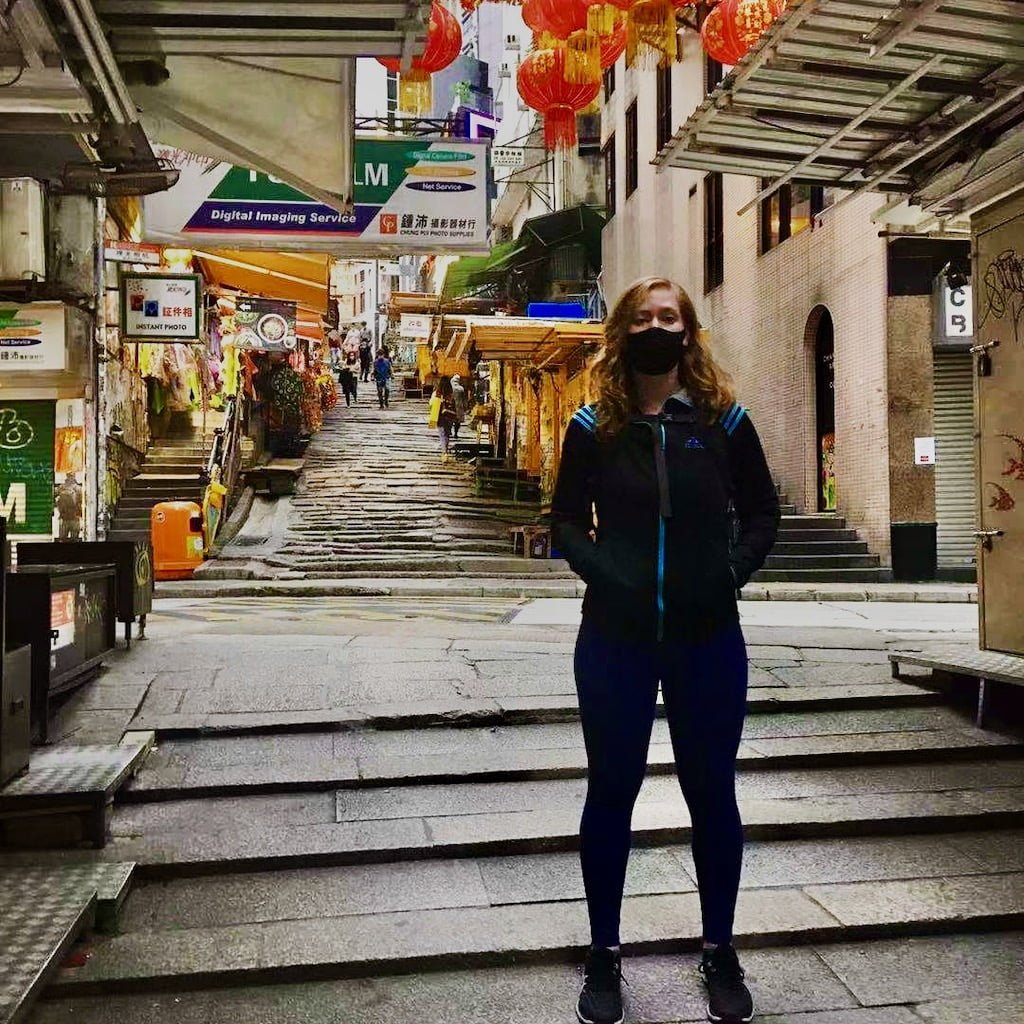
Southeast Asian success against COVID-19
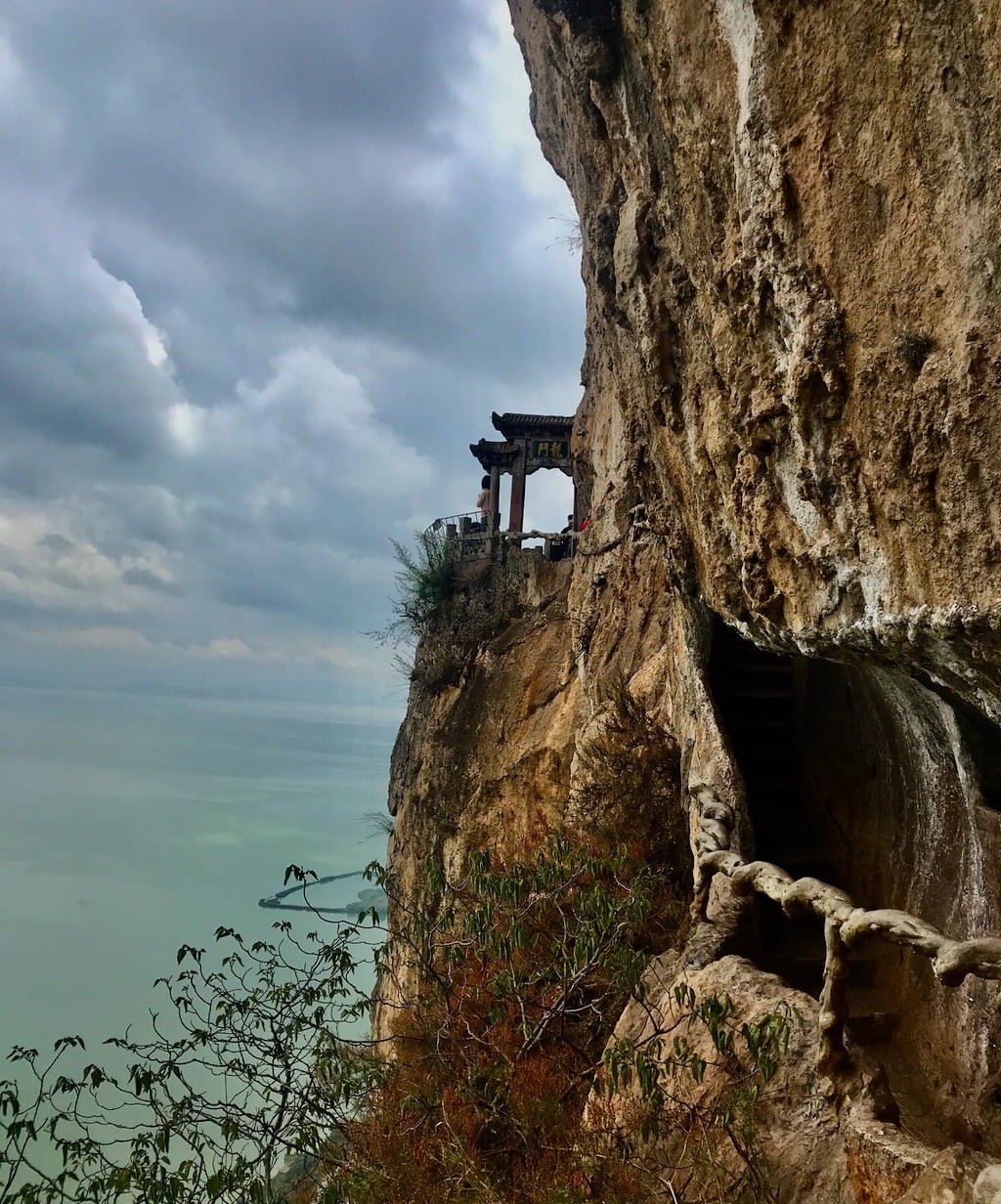
I had no problems traveling to Kunming in May of 2020
It’s not just China that has been largely successful at controlling the virus – other countries, many in Southeast Asia, have also been successful: South Korea, Taiwan and Singapore, for example. What have they done differently? A few things have been attributed to this success: a “collectivist spirit”; digital contact tracing; enforced quarantines; and a more recent history of dealing with infectious diseases
An excellent article by the Harvard Business Review helps summarize the success of digital contact tracing and quarantining. Each place has implemented its own approaches: for example, in Mainland China a person arriving from overseas has to do a mandatory 14-day quarantine in designated quarantine hotels, but in Hong Kong they’ve given arrivals a geofencing wristband (paired with an app that they report on) to enforce at-home quarantines.
Taiwan, Mainland China and others have also utilized mobile tracking to show where a person has been, usually in the past 14 days. Some private businesses have created their apps, like in South Korea, for citizens to download to see if anyone nearby has tested positive for COVID-19 and where they visited. In China, this mobile tracking information is mandatory when traveling domestically.
What this means for people traveling, like me, is that we are constantly having to fill out mobile health codes and giving out information when we arrive in a new destination. The system isn’t always perfect (as I explain below), but it’s a small price to pay to be able to travel safely during a pandemic.
China’s Border Control
It’s notable to mention that on March 28th, 2020 China shut down its border to almost all foreigners entering, even if they held a valid work permit/residence visa. In September, this policy was relaxed for certain countries, but if COVID cases spike in a country, like in England for example, China will once again put them on the ‘do not enter’ list. As this information is ever-changing, it’s important to check the most updated information for your country if you’re looking to come back to China.
International students in China have still largely been denied re-entry. China also shut down its border with Hong Kong and Macau, although recently the restrictions have been somewhat loosened for residents and people doing business, but not for foreigners.
In the past few months, I’ve heard of *some* English teachers being able to come back to China, but not many. It’s a lengthy process getting back, and flights are still expensive.
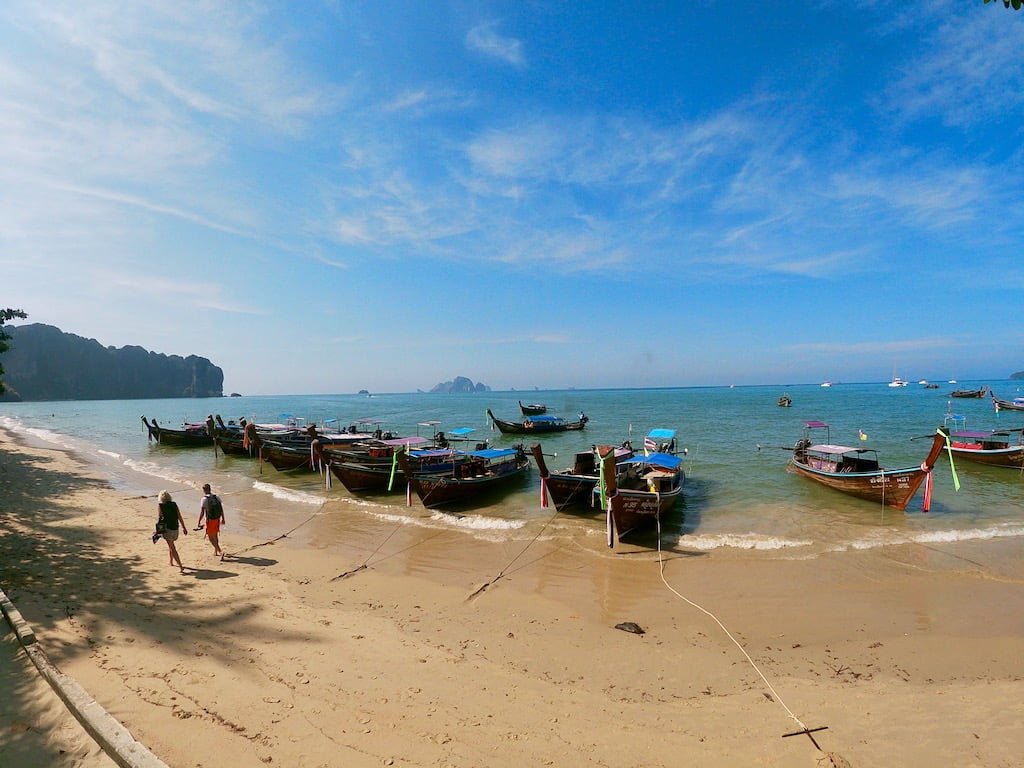
After spending 3 weeks in Thailand, I squeaked back into Mainland China on March 28, 2020–2 days before the border closed
Different treatment for foreigners?
Traveling as a foreigner in China during COVID can be stressful, as we can be particularly scrutinized. Some of this scrutiny is understandable; some of it is irrational. The biggest news about this that hit the Western world was when Africans in China started being discriminated against more aggressively, particularly in Guangzhou after some Nigerians tested positive for COVID-19. Longer quarantines were imposed for Africans and many restaurants and hotels refused to service them. Of course, racism didn’t begin because of COVID-19 — this situation just brought out previous tensions that had been buried slightly deeper.
Statistically, more Chinese nationals are returning to China and testing positive than foreigners, especially because many foreigners are still barred from returning. However, foreigners are much more visible and spark fear in many. Particularly during the months of April, May and June, tensions were high. I, as a white foreigner, dealt with a few issues during these times. I was denied entry into some housing complexes by security guards, even though I had all my health codes in order. One time a whole group formed of people that lived in the apartment complex, yelling that I shouldn’t be allowed to enter; when my friend called the police, they said that I “should” be allowed in, but that it’s up to the “community rules” on how they want to proceed.
Sometimes people attempt to deny foreigners just out of a knee-jerk reaction because of “safety concerns”. Other times they request more documentation that Chinese nationals don’t need to provide. Sometimes they concede and sometimes they don’t. However, largely the tension has dissipated and rules and regulations are more well-known and in order now,
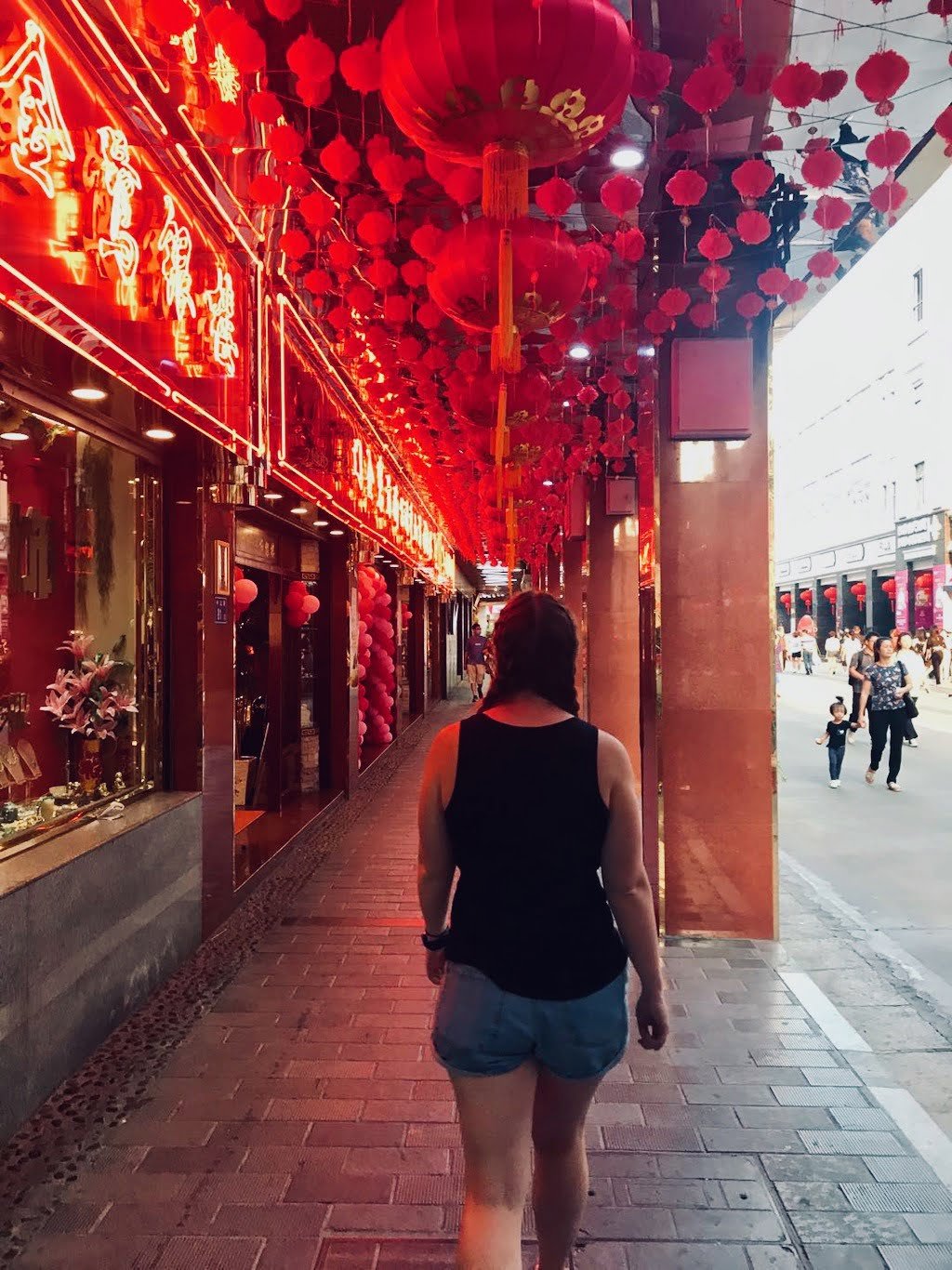
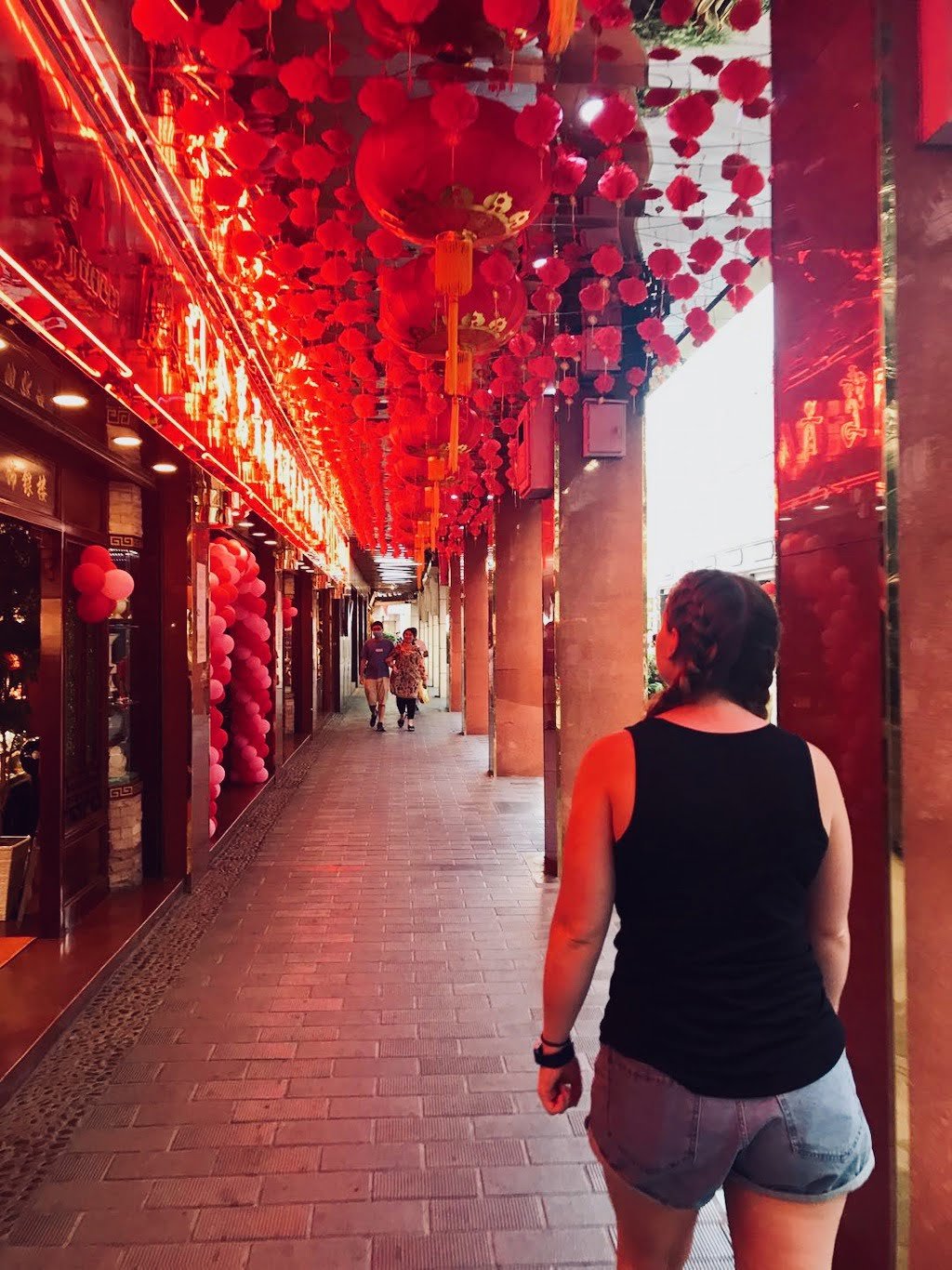
Exploring Xiamen during China’s National Days, October 2020
Mainland China Safety Precautions and Procedures
So, what are the procedures here in Mainland China? This is the question I attempt to answer next, based largely off of my own experience traveling. Know that, contrary to what Western news says about China, local governments are quite powerful. During the lockdown, it was local governments making their own procedures and enforcing them. Afterwards, it was local governments creating their own health codes and systems in place, which is still continuing. So there is a wide range of responses, depending on the province/county/city standards, and also a variety of interpretations from the security guards enforcing these protocols.
Masks are still mandatory on public transit
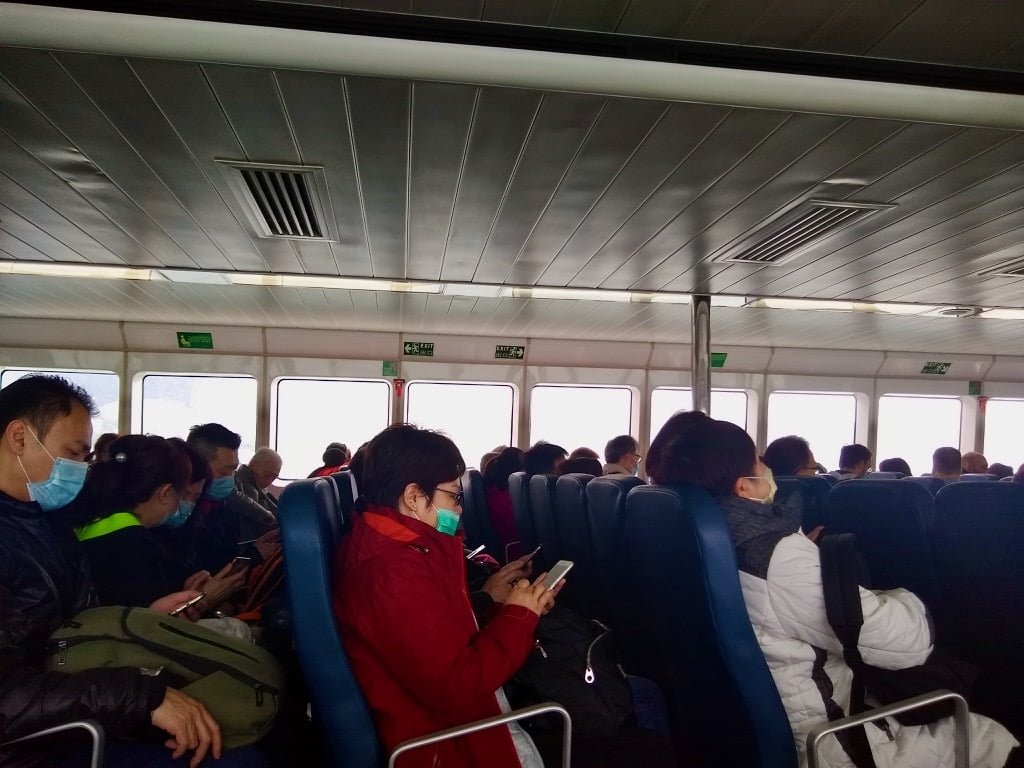
Public transit, including the subway, train and bus, all require masks still. Sometimes hotels require you to put on a mask during check-in. It doesn’t matter that the virus is under control, this is a precautionary procedure and if it makes other people more comfortable, I’m all for it. Less and less people are wearing masks outside, so I feel comfortable taking it off while walking outside, etc.
Digital Health Codes
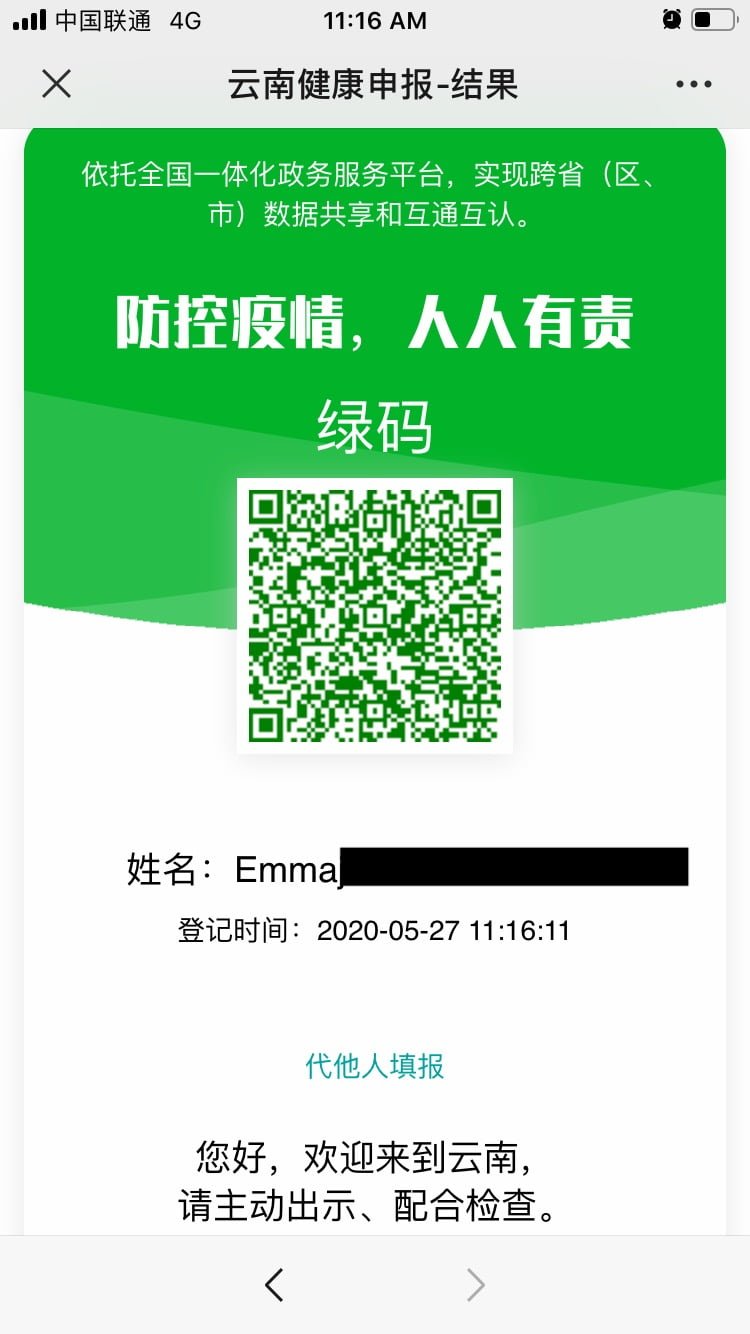
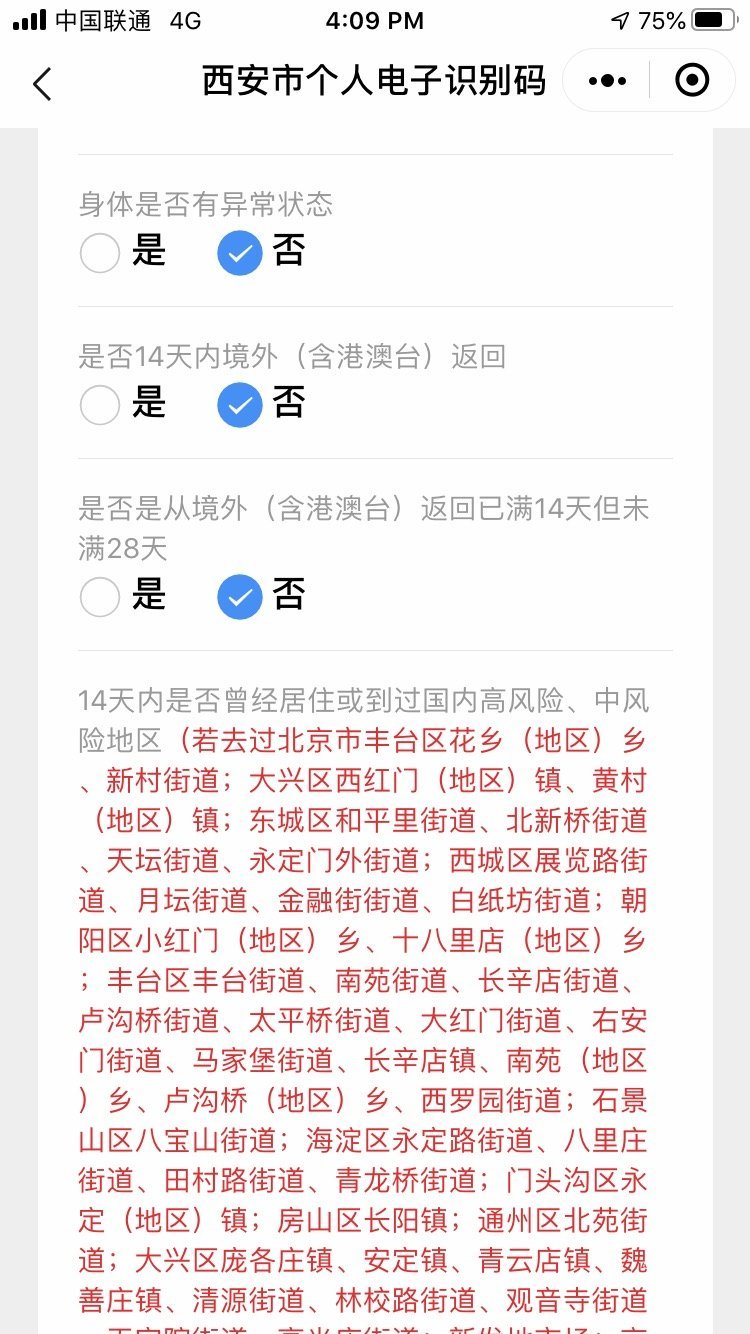
Unfortunately, there is no standardized China-wide health code (although it was recently announced that they’re working on one), so each province or city has its own health code that you have to fill out. Usually this is done by scanning a QR code on your phone and inputting basic information about yourself. There’s also a phone health code (that’s much easier) that they sometimes also require – for this one it just asks for your phone number, sends you a security code, and then is able to determine where you’ve been in the past 14 days. If your information doesn’t have any red flags, then your health code will be green and you can enter.
Both WeChat and Alipay have a great feature called “Health codes” that allows you to access pretty much every places health code when you type in the name of the province and city. This is incredibly helpful and a much-needed improvement.
Health code challenges
Unfortunately for foreigners, sometimes the health code isn’t exactly foreigner friendly. I’ve encountered some that don’t accept passport numbers, only a Chinese ID card, which foreigners don’t have. At one point, health codes were needed even to enter restaurants, so this was particularly cumbersome to not be able to have a health code that you could fill out.
In Chongqing, the health code had a passport option but it glitched and would freeze up; however, it did allow a Chinese person to input a foreigner as a “guest,” so I had to have a co-worker sign me up with a health code.
And sometimes things are difficult for foreigners without intentionally being difficult – in Xiamen, the QR code wanted us to download an app to fill out the health code; however, the app wasn’t compatible with foreign phones. Luckily, we were able to find a mini program of it on WeChat that we could use.
And, yes, the health codes are usually only in Mandarin Chinese. If you can’t read Mandarin, well, you’ll most likely have to do a lot of translating. Sometimes the health codes require an address, so you have to know the address of where you’re staying, including the district that it’s in.
Security Checks for Foreigners
This varies based on local government rules (or just on the security guard, let’s be honest), but frequently foreigners are pulled off to the side upon arrival in a new city.
Usually it’s standard procedure: they ask for your passport, when you’ve come back to China, your phone number, and maybe some other questions. When a friend and I went to a more rural location in Chongqing province, we were the first foreigners that the security guards had seen since COVID started, so they called in a bunch of other people because they didn’t know what to do. I had to repeat the same answers to different people because they were all reporting to different people. Bureaucracy. But at the end of the day, there should be no reason for foreigners not to be allowed in unless their health code is red. Previously, back in April and May, many places required foreigners to also have a negative COVID test, but that doesn’t seem to be the case anymore.
Foreigners need to choose lodging wisely
International hostels or big-name hotels you can’t go wrong with; they will accept foreigners. But smaller hotels, maybe not. This could be for two reasons: 1) They don’t have a license to house foreigners, or 2) They’re discriminating and this is illegal. If it’s #1, well, that’s Chinese law and this happened before the virus. If it’s #2, you can argue this one.
Frequently, it isn’t the hotel policy that’s discriminatory – it’s just the person at the desk that *assumes* that foreigners can’t stay there, or just doesn’t want to deal with foreigners staying there right now. So when pressured, they’re likely to fold.
When I went to Xiamen with a few friends, we booked a hotel on Trip.com, as it was one of the cheapest options during National Days and still in a good location. We made sure that in the comments there were foreigners that had stayed there (albeit before COVID-19). However, when we arrived we were told by the front desk staff that since we had come back to China in March of 2020 (over 6 months ago!) we weren’t able to stay there. This made no sense, and was downright false. After arguing, she finally called the manager who, lo and behold, said the only requirement is a green health code, just like everyone else.
Online ticket purchases
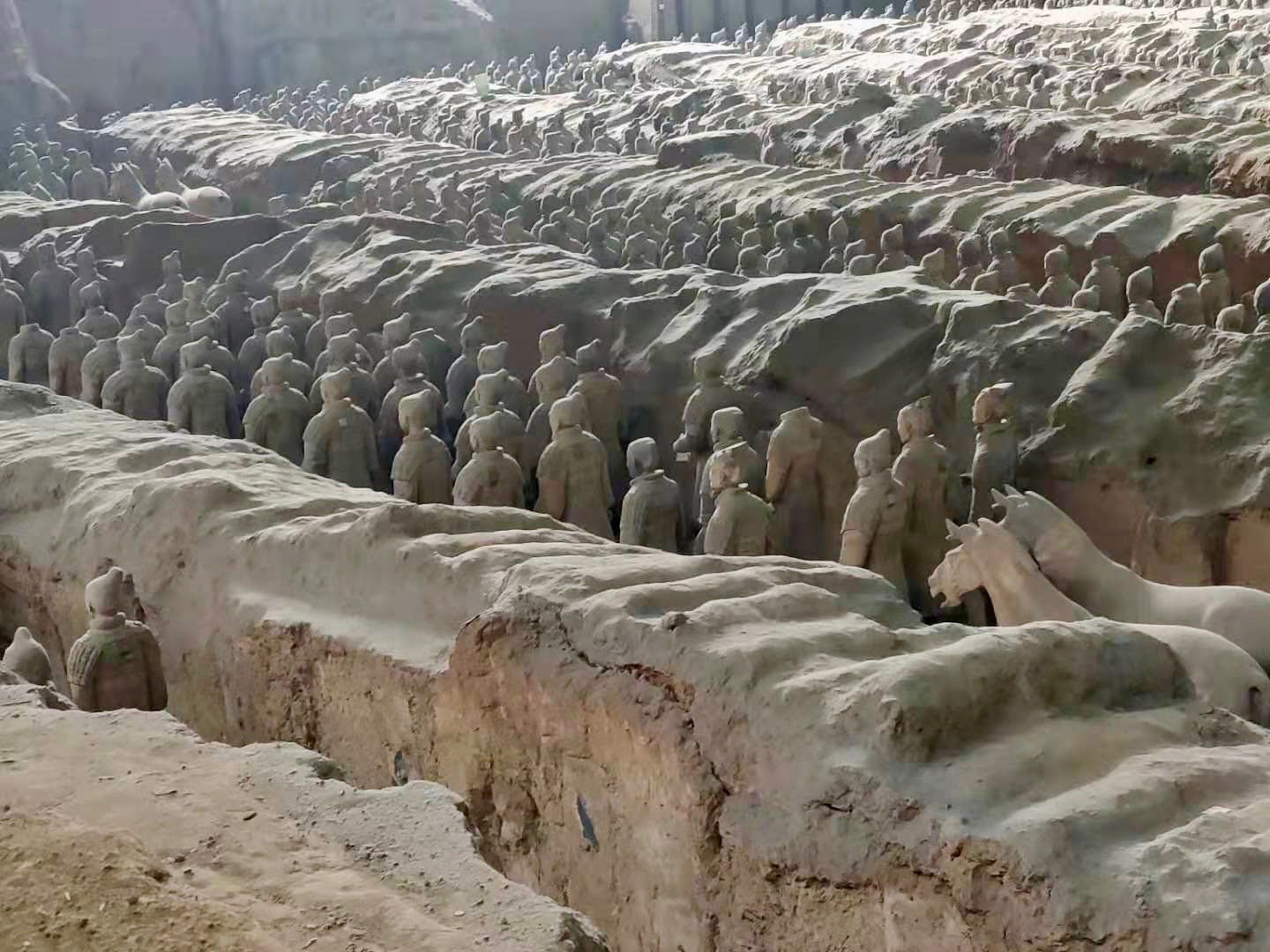
As of June 2020 the terra-cotta soldiers were one attraction you had to buy online tickets for; however, since it didn’t work for foreigners they could still buy at the ticket window.
Not all tourist attractions require this, but many places use online ticket purchases as a way to register who is entering and (I think) as a way to count numbers if they’re limiting the number of people allowed in.It’s usually straightforward as long as you have a WeChat or Alipay account that’s linked to a bank account.
Challenges for foreigners
Generally, online ticket purchase is easy and there’s a QR code to scan and buy. If you don’t know what to do, there’s always a security guard or someone to help. However, there are occasions, just like with the health codes, that passport numbers aren’t allowed. If this is the case, there *should* still be a ticket window open for foreigners (and people without smartphones, which is rare here nowadays) to purchase tickets. However, again sometimes the workers and/or security guards don’t know the rules and will try to tell you that you can’t enter. This isn’t true.
In one extreme situation, a friend and I were denied entry to Huashan Mountain near Xi’an because they had made it a rule that you needed a Chinese ID card to enter. We couldn’t purchase the online tickets and even though there were people in the ticket window, they refused to service us, saying we needed a Chinese ID card and that was fina. We had a Chinese friend call and issue a formal complaint, and they said they’d consider re-evaluating the Chinese ID card rule, but I have no idea what happened after.
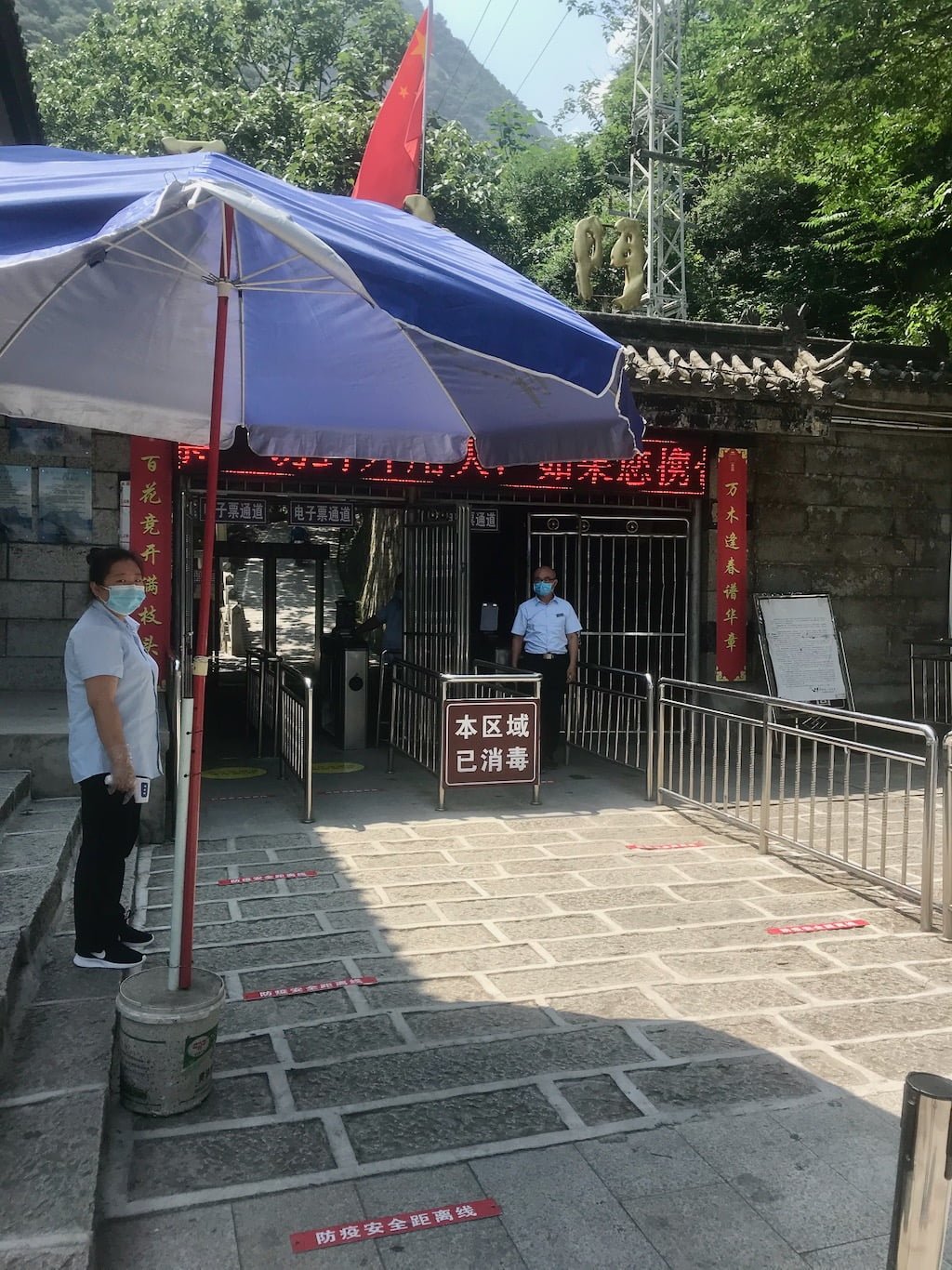
People checking temperatures and health codes
There are challenges, but it’s safe
I’m never someone who wants to make things look rosier than they are. So yes, there are some challenges to traveling domestically in China because of the virus and different procedures in place, but overall it’s easy enough to navigate. The vast majority of people are friendly and patient, and it gives many people here peace of mind to know that systems are in place to keep them safe. So, if you can enter China or are already here, travel to your heart’s desire – just make sure you have your documents in order.
Liked this post? Pin it!
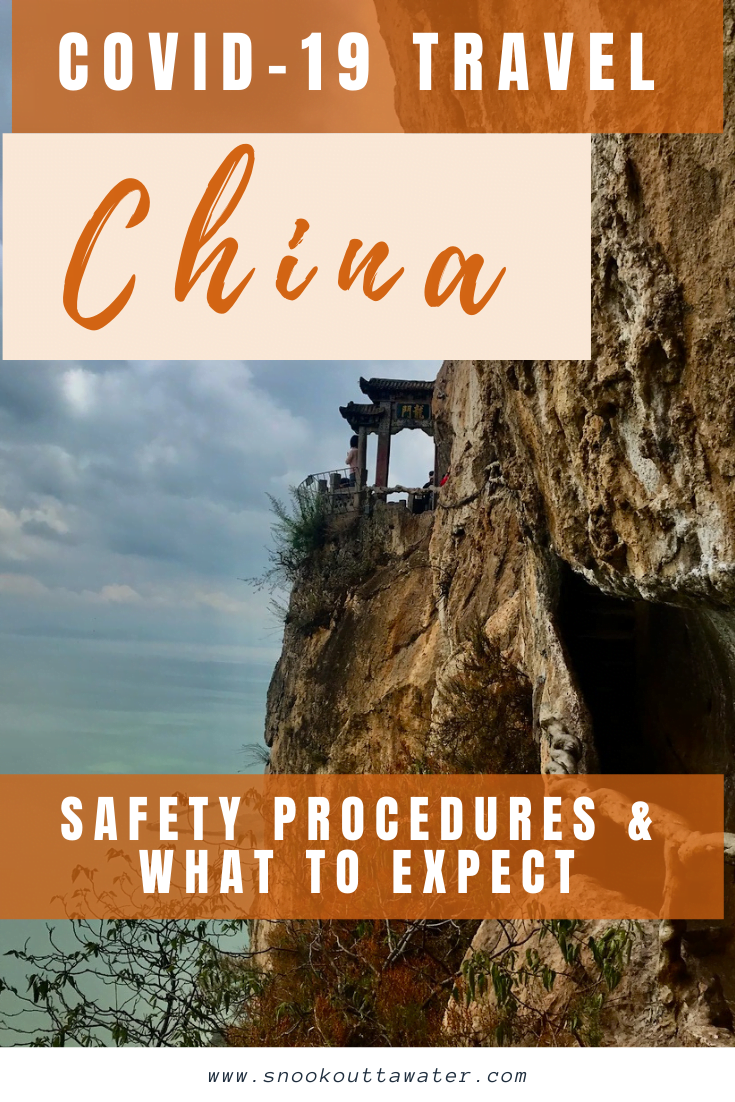

Other posts you may like:
Subscribe to receive Snook Outta Water’s monthly newsletter with exclusive updates and content.
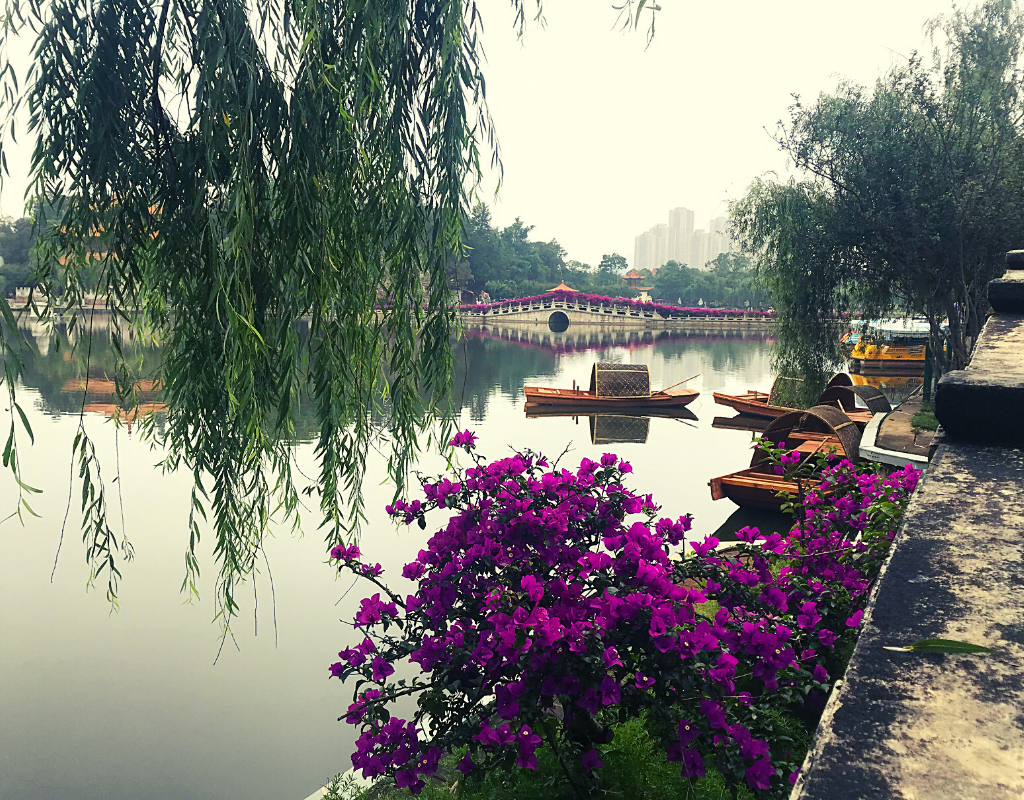
Leave a Reply